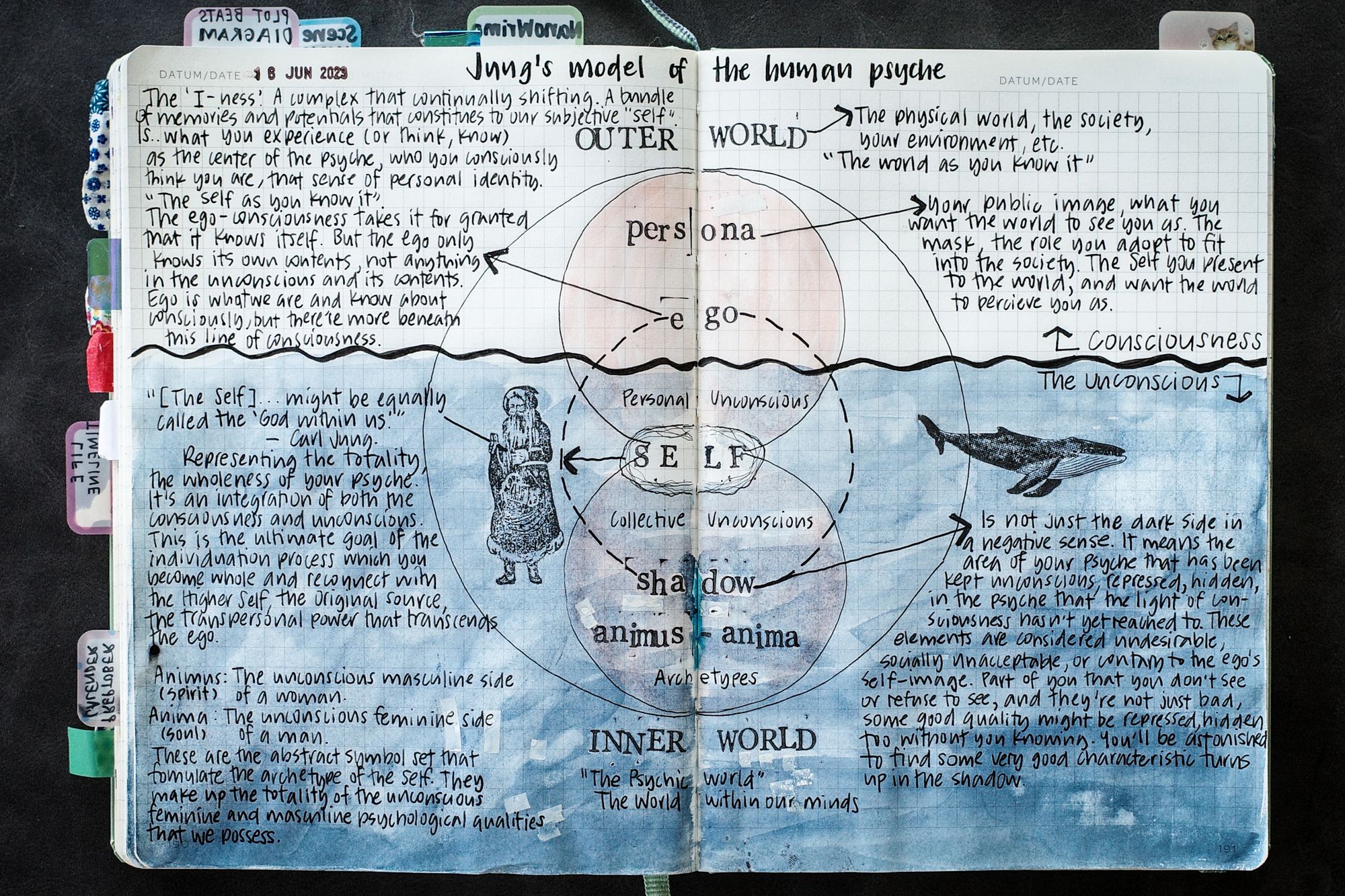On Knowing Thyself and Approaching the Unconscious Series: Part 2

In this part, we will begin the work of descending down into the realm of the unconscious, the part beyond which the conscious mind can reach.
“I undertook something that not everyone may undertake: I descended into the depths, I bored into the foundations.” – Friedrich Nietzsche.
The Unconscious, the depth of our psyche ocean– our minds. The deep and dark realm where the light of consciousness doesn't reach to. This introspective exploration is essential to the process of knowing ourselves, our self-actualization, or as Jung called it the 'Individuation' process. To begin this journey of a lifetime, we need to understand what are the layers beneath our consciousness minds because what we know about ourselves is not all that we are. Navigating the realm of the psyche will help us to understand ourselves better in order to heal.
I won't try to make it overly theoretical here as I will leave it to the Jungian analysts whom you can find countless learning materials like essays, articles, and courses both online and offline. My objective is to articulate the concept in a readily approachable manner, making it easier for regular folks like us to navigate the majority of the content on this website more effectively.
There are 2 major archetypal Selves in the unconscious (there are more Selves to these two that formed the realm of the unconscious, but we're just going to focus on these two Selves) and th

"One does not become enlightened by imagining figures of light, but by making the darkness conscious." – Carl Jung.
The Shadow. The part of our unconscious self, the self that has not entered adequately into our consciousness, therefore is referred to as the 'dark area where the light of consciousness hasn't yet reached'. This part of who we (not knowingly) are has energy as nearly as great as that of our ego but is kept, suppressed, and hidden in the unconscious realm. If this energy builds up inside until it overpowers the ego (our conscious self), we will project it out in the form of overwhelming emotional indiscretion like rage, anxiety, depression, aggression, or an accident/ event that keeps repeating itself and you wonder why that happens to us, and in the end, we will blame it on fate.
- The Shadow
This part of our psyche doesn't include only the negative aspects in us, in fact, some of the good traits can also be called shadows as long as they are the part of ourselves that are still kept in the dark area of our psyche. Being assertive, for example, in a lot of cultures is considered to be equivalent to being rude therefore people keep it inside not knowing that it can be a potential strength when used in the right manner and situations, especially at work.
Shadow is such a fascinating part of our psyche and it's so vast that one article will not do the justice of describing it. I will write more about it in future posts but essentially for this post, I only want to lay the foundation of the Shadow as being the part of ourselves that we fail to recognize or deny the existence. it's the part we don't like about ourselves or uncomfortable showing it to the world. Therefore it only shows itself to us through our dreams or subconscious impulses projecting out into our daily lives, and the more we try to keep away from those dark parts, the more they will control our lives in the invisible and unconscious way.
2. The Self
Represents the central focus and core concept in Jung's theory of personality and the process of individuation (which refers to the psychological journey of achieving a balanced and integrated sense of our; inner, higher, or divine Self, the God within us so to speak). The Self represents the totality of an individual's psyche, the integration of both the conscious and unconscious aspects of the personality. It is the center of the psyche, the organizing principle that seeks to unify and harmonize all conflicting elements within a person.
It is important to note that Jung's concept of the Self goes beyond the ego-centric view of self and emphasizes the importance of recognizing and connecting with broader aspects of the unconscious and the collective human experience. It's similar to the Soul in a spiritual context, it's the highest potential of who we are, can be, and were at the beginning of time.
"The encounter with the Self is equivalent to the discovery of God." – Edward Edinger.
This is what this is all about. This is what Knowing Thyself is about. Knowing and owning all the aspects of who you are, connect with our Source– the Self.
This is a lifetime journey, the one we began long before birth and will continue to evolve until the end of our conscious awareness. Just by beginning to make the unconscious conscious, shedding your defenses and fears, and have your Ego regulated.
Start owning your own Shadow by being aware of your fears and insecurities, feeling all the uncomfortable feelings, letting them go through you, and just be aware.
You are now on a good start to becoming the best version of your Self and making an indefinite positive contribution to yourself, and the world.
"Until you make the unconscious conscious, it will direct your life and you will call it fate." – Carl Jung.
Thank you for spending time with me today.
No spam, no sharing to third party. Only you and me.






